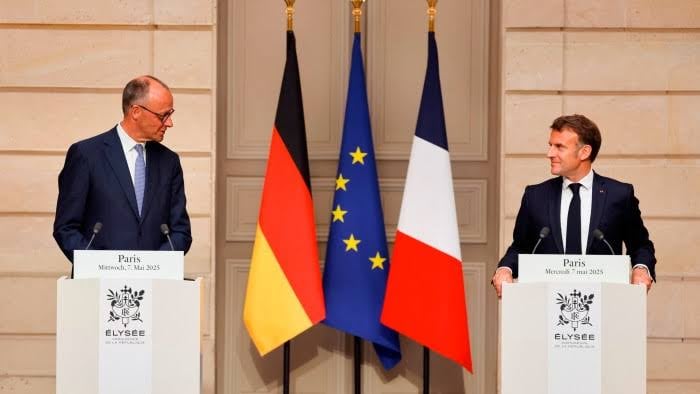Germany and France Align on Targeted Aerospace Tariff Strategy
As trade tensions simmer between the EU and Washington, German and French aerospace industries have closed ranks on a key issue: retaliatory tariffs must focus on complete US aircraft and helicopters, not critical spare parts. With the European Commission weighing duties on €95 billion worth of US goods, the aviation sector is under scrutiny.
The German Aerospace Industries Association has made it clear that hitting finished aircraft makes strategic sense, while sparing parts protects both European and US-linked supply chains. The French government is backing the same line, echoing a warning from Airbus that taxing spare parts could severely disrupt transatlantic production lines.
The backdrop is a fragile negotiation climate. Despite high-level talks at the G7 in Canada, and meetings in Washington this week, the US has already launched a probe into possible countermeasures. Should talks break down, tariffs could escalate quickly.
President Trump has already threatened to hike tariffs on all EU imports to 50% by July 9, up from current levels of 50% on steel and aluminium, 25% on vehicles, and 10% on other categories.
What Does This Mean for Me?
Industry fears are not unfounded. The LEAP engine, powering both Boeing and Airbus aircraft, is co-produced by US-based General Electric and France’s Safran, highlighting the tightly woven nature of global aerospace manufacturing. If the EU goes broad with tariffs, the damage could be mutual.
For now, the EU’s draft retaliation list is awaiting approval, but the message from Europe’s aerospace powerhouses is clear: avoid a chain reaction that hits parts and jobs on both sides of the Atlantic.

More News
.webp)
Japan’s Rate Shift Is Rippling Through Global Bond Markets

China’s Growth Engine Stalls as Consumers and Investors Pull Back

Egypt’s Recovery Gains Traction as Household Pressure Lingers

OECD Warns AI and Tariffs Will Test the Global Economy

Zero Tariffs, Higher Drug Bills as US and UK Reset Pharma Trade

Catastrophe Bonds Go Global as Climate Risk Meets Yield Hunting
.webp)
Canada Shields Steel and Lumber Industries From Tariffs
